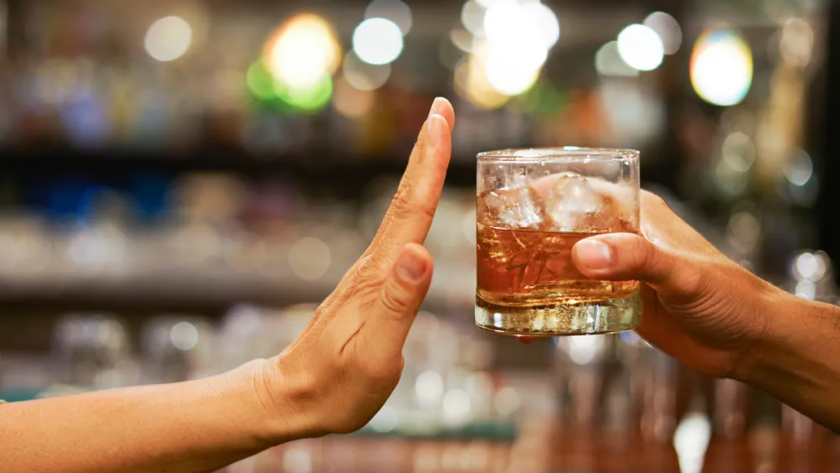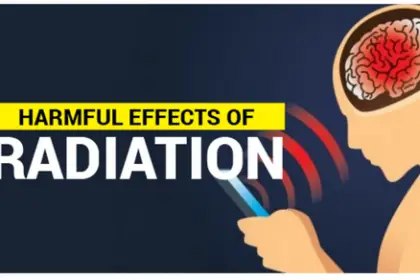Alcohol is one of the most commonly used substances worldwide, but excessive drinking can have serious negative effects on both physical and mental health. Many people choose to take a break from alcohol or quit drinking altogether in an effort to improve their wellbeing.
But what actually happens in the brain when someone abstains from alcohol for an extended period of time? New research is shedding light on the cognitive and neurological changes that take place after just a couple months of sobriety.
In this article, we’ll explore the timeline of science-backed benefits of abstaining from alcohol for two months straight and longer. From improved memory and concentration to increased neural connectivity and growth, we’ll look at the remarkable transformations that can occur throughout the brain with as little as 60 days off the bottle. Going sober not only clears the mind, but may even reverse damage caused by heavy drinking over time.
Timeline: What Happens When You Quit Drinking Alcohol?
If you’re ready to give up alcohol, and you are drinking every day, here is a timeline of what you can expect in regards to your mental and physical health when you stop drinking. If you have alcohol use disorder but only drink on weekends, know that you will also get benefits from stopping:
Day 1:
The first day is always the hardest, but it’s also an important milestone. After 24 hours without alcohol, your body will start to detoxify and you may experience withdrawal symptoms.
It’s important to remember that they are only temporary and will usually subside within a few days. For individuals with severe alcohol dependence, however, withdrawal symptoms can be more severe and may require medical attention.
Day 3:
After three days, you will likely start to feel more like yourself. However, individuals who have been drinking heavily for long periods of time may still experience some symptoms of withdrawal and may even have hallucinations or delirium tremens (DTs) and seizures.
Delirium tremens is a a serous and life-threatening condition, and If you’re concerned about your symptoms, it’s important to talk to your doctor.
One Week
After one week without alcohol, your risk of seizures is much less. Also, your risk of developing cardiovascular disease will start to decrease. Alcohol can increase your blood pressure and make your heart work harder. In the coming weeks, your liver will also begin to repair itself.
One Month
A month alcohol-free is a big accomplishment. This is usually when people start to feel their best after giving up alcohol. By this point, most physical withdrawal symptoms should have subsided and you should start to feel less anxious and more positive.
The brain also begins to repair some of the damage and shrinkage you may have experienced while drinking. One study showed that after 6 weeks of abstinence from alcohol, brain volume increases by an average of 2%.
Six Months
After half a year without drinking, you will really start to reap the rewards. Your risk of developing cancer will decrease, and your liver function will have greatly improved.
You may also begin to notice a number of improvements in your physical health. You’ll have more energy and stamina and you may notice that your skin looks healthier.
One Year
At this point, your risk of developing all types of disease will be reduced and your bone density will start to increase. Keep in mind that everyone is different and will experience different things when they stop drinking.
While giving up alcohol can be a challenge, it’s important to remember that the benefits are well worth it.
Mental Health Effects When You Stop Drinking
The mental health changes you experience when you stop drinking can include symptoms of withdrawal, difficulty sleeping, irritability, mood swings, and clearer thinking. While some of these changes can be uncomfortable for some time, they will eventually begin to improve the longer you abstain from alcohol use.
- Your Body Starts to Detox
When you first stop drinking, your body will begin to detoxify itself. This can lead to withdrawal symptoms, including anxiety, tremors, sweating, and nausea. Symptoms of alcohol withdrawal can range from mild to severe.
- You May Have Trouble Sleeping
One of the most common side effects of giving up alcohol is insomnia. This is because alcohol acts as a sedative, so when it’s no longer in your system, you may have trouble falling asleep or staying asleep.
- You May Feel Irritable, Anxious, or Moody
Like other symptoms, the impact on mood depends on the amount and duration of your alcohol use. For light or moderate drinking, you might experience a more temporary, mild effect on mood. If you’ve been drinking heavily or for long periods, the impact will be more pronounced, and it will take longer for your neurotransmitter systems to restore their balance in your body.
- You May Think More Clearly
Drinking alcohol can contribute to a variety of cognitive issues, including poor memory, slow reaction time, impaired impulse control, and poor concentration. Over time, drinking can also damage nerve cells and contribute to a loss of brain volume.
- You May Feel Happier
One of the best things about giving up alcohol is that you may find yourself feeling happier overall. This is because alcohol can cause depression, anxiety, and other mental health problems.
Physical Effects When You Stop Drinking Alcohol
In addition to the mental benefits you’ll experience when you stop drinking, there are also many physical benefits as well. Some of the ways that quitting drinking can improve your physical health and well-being include:
- Your Liver Will Start to Repair Itself
Alcohol is a toxin that can damage your liver. However, when you stop drinking, your liver will begin to repair itself and the damage will start to reverse.
- Your Appetite May Change
When you drink alcohol, even in moderate amounts, it can result in obesity. So, when you stop drinking, you may find that you have fewer cravings for food.
- Your Risk of Certain Diseases Will Decrease
If you’re a heavy drinker, you’re at an increased risk of developing certain diseases, such as cancer, heart disease, and stroke. However, when you stop drinking, your risk of developing these diseases decreases.
- Your Skin May Improve
One of the surprising side effects of giving up alcohol is that your skin may start to look better. This is because alcohol can cause dehydration, which can lead to dry, dull skin. So, giving up alcohol can help your skin to look more hydrated and glowing.
- You May Have More Energy
Once the initial symptoms of withdrawal have subsided, you may find that you have more energy than you did before you stopped drinking. This is because alcohol is a depressant, so when it’s no longer in your system, your body has more energy to work with.
It is worth mentioning that nutritional status improvement occurs when someone stops drinking, which is one big reason why people may see many of the above improvements with sobriety.
Other Benefits When You Stop Drinking
Quitting drinking can have many important benefits for your physical and mental health, but there are many other types of benefits you may experience as well.
- You May Have More Money
One of the financial benefits of giving up alcohol is that you’ll likely have more money to spend. This is because alcohol is a costly habit, so giving it up can free up some extra cash. - You May Live Longer
One of the most significant benefits of giving up alcohol is that you may increase your lifespan. Alcohol misuse can lead to serious health problems like liver disease and cancer. So, giving up alcohol can help you to avoid these potentially deadly diseases. While it has been suggested that one or two drinks per day may have health benefits, one meta-analysis found that even moderate intake has serious health risks. Women who had two or more drinks per day and men who had four or more drinks per day had significantly increased mortality.
- You May Feel More Productive
One of the unexpected benefits of giving up alcohol is that you may find yourself more productive than before. This is because alcohol can cause fatigue and decreased motivation, so when you stop drinking, you may find it easier to get things done. - You May have Better Relationships
Alcohol can cause problems in relationships, such as conflicts, communication problems, and trust issues.18 So, giving up alcohol may help you to improve your relationships with
Abstaining from alcohol for just two months can lead to some impressive changes in brain structure and function. After only 60 days sober, most people experience enhancements in memory, concentration, and problem-solving capabilities.
Neural connectivity strengthens and new neural pathways are formed, essentially re-wiring the brain for improved cognitive health. The brain is no longer soaked in ethanol, allowing inflammation levels to decline and neurotransmitter balance to restore.
While the benefits continue to increase the longer one abstains from alcohol, this short two-month experiment highlights just how quickly the brain can bounce back and regenerate when given the chance. Of course, for those with severe alcohol use disorder, more intensive treatment and lifestyle changes may be necessary down the line.
But for the average drinker looking to take a break and re-calibrate, abstaining from alcohol for two months can spark tremendous brain benefits right away, leading to clearer thinking, better memory recall, improved mood, and greater mental performance across the board.





